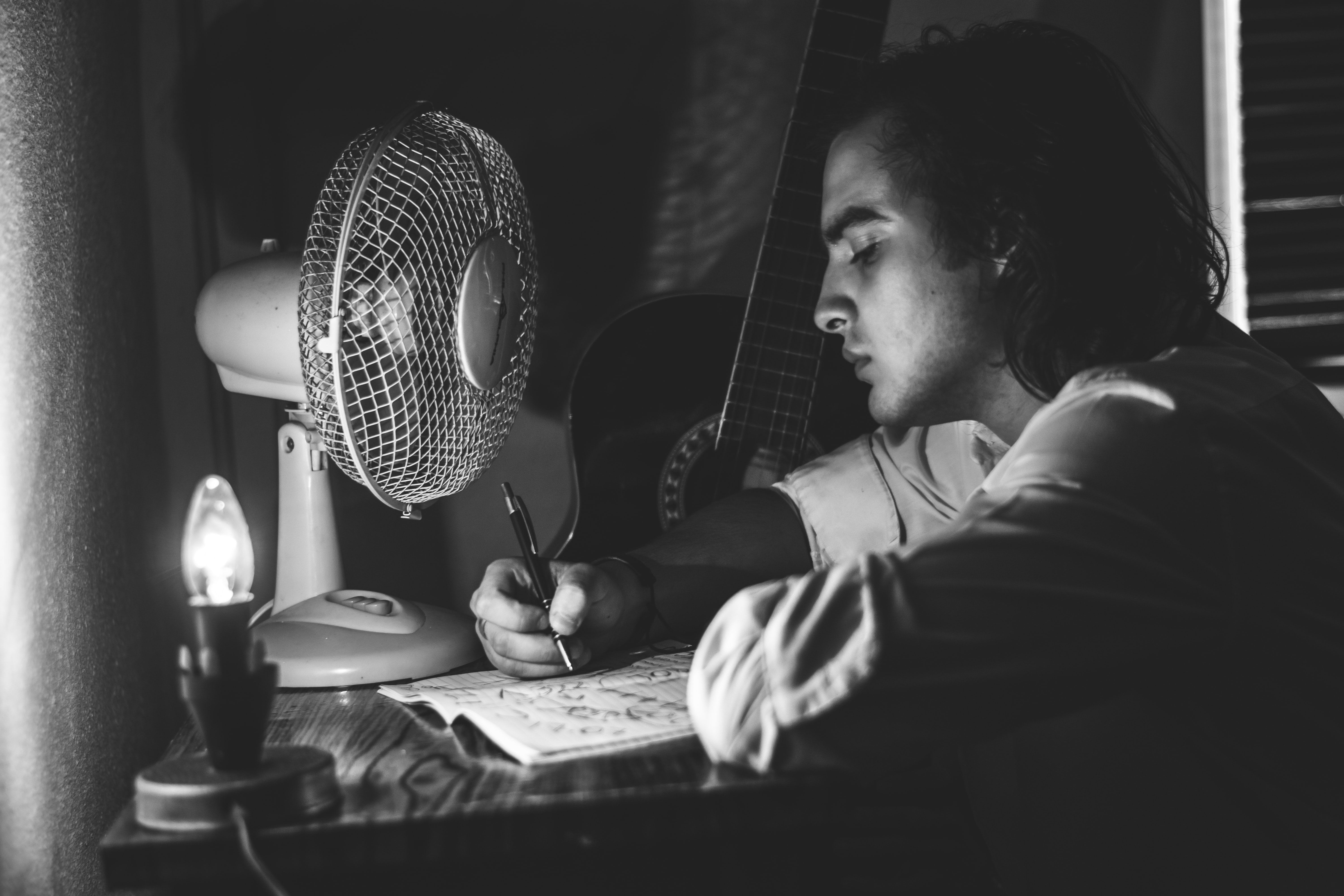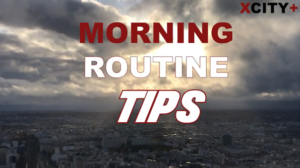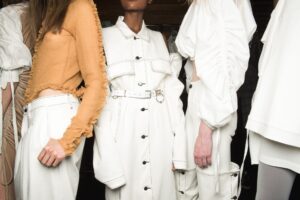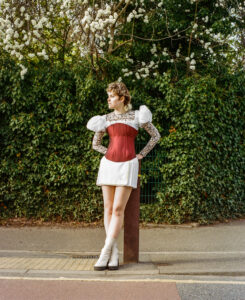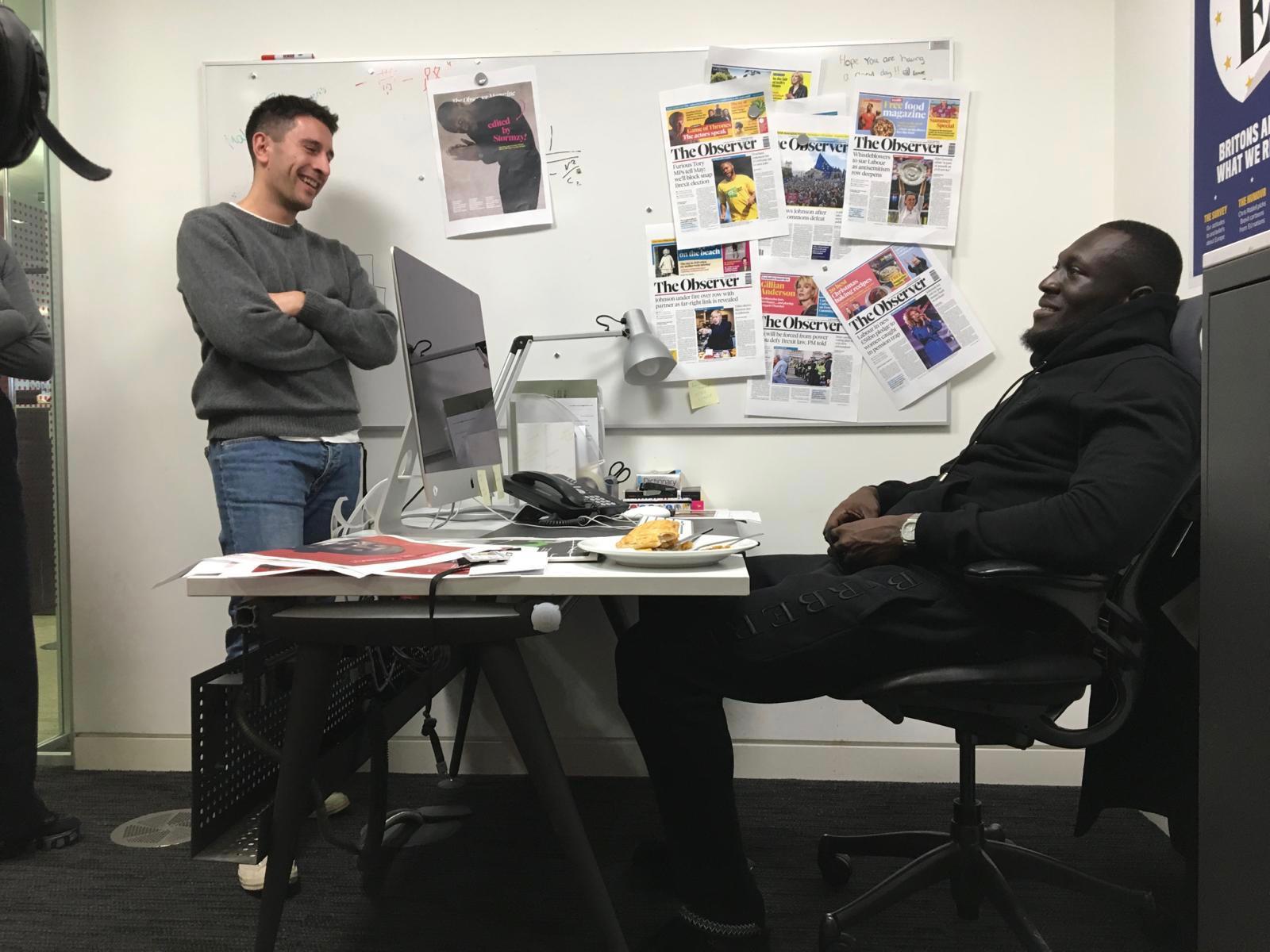
Not too big for his boots: Stormzy was “really involved” when he guest-edited The Observer Magazine with Alex (Photo Credit: Alex Moshakis)
Anna Barry speaks to The Observer Magazine’s Alex Moshakis about his top tips for interviewing the stars
Alex Moshakis, commissioning editor at The Observer Magazine, is well-versed in the art of interviewing famous people. With VIP interviews such as Stranger Things star Finn Wolfhard and Twilight heartthrob Robert Pattinson under his belt, he shares his step-by-step guide on how to get the most out of interviews with the stars. His first tip? “Always make sure your Dictaphone is on,” as my eyes dart towards my phone to check that I’m recording.
1) Pick the right journalist for the job
Moshakis recalls an interview he did with Robert Pattinson: “We’re about the same age. And at the interview he was wearing a skateboarding t-shirt and I used to skateboard, so we connected over that.”
When deciding who will interview a celebrity, Moshakis says that editors usually pick someone because they have a particular interest in the person or subject – or someone who shares a similar cultural background. For aspiring journalists who want to interview the elite, Moshakis advises having an interest in specific subjects – that way you can ask compelling questions. Whether your common ground be action films, classical music or, for Moshakis, skateboarding, being able to connect with the celebrity can lead to a more revealing conversation.
But there can’t be too much connection between interviewer and interviewee. Things must remain professional, and a journalist must always remember that the interview is a “transaction”. As for personal friends of the celebrity conducting the interview, the up (and down) side of this is familiarity. “If someone is a friend, they have insider knowledge others wouldn’t have, but there’s a danger that they’ll miss out key facts assuming the reader knows everything they know.” Having an element of objectivity is crucial.
2) Prepare thoroughly
When preparing for a big celebrity interview, Moshakis advises: “Read as much as possible: Read about the celebrity, read the interviews they have done before, and read generally – especially profiles, to see what works and what doesn’t. And don’t just read good stuff. You can also learn what not to do from the bad stuff: How not to use language or how not to structure a piece.”
Before conducting an interview, Moshakis advises having a conversation with the editor to talk about the direction of the piece, but during the interview “just let the conversation happen”.
However, while being prepared is essential, as an interviewee will only give as much as you do, it is still unlikely that they will bare their soul in case they say something perceived as ‘wrong’. “People are terrified of cancel culture.”
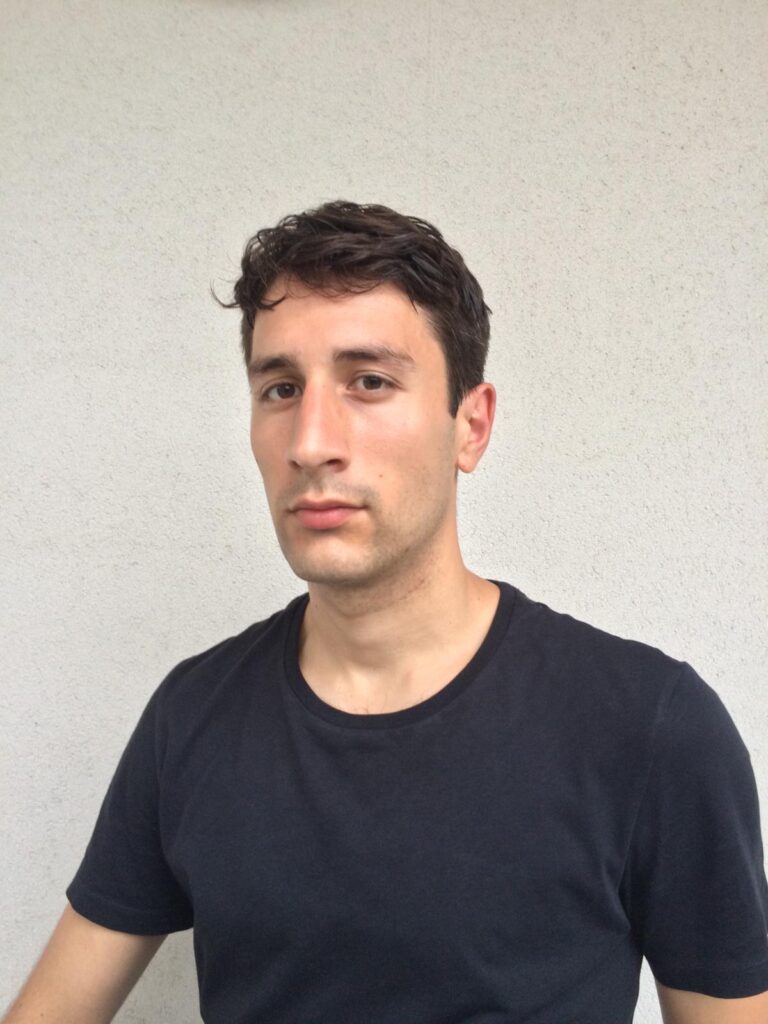
3) Know that it’s different from interviewing a non-celebrity
“With a famous person, the transactional bit is more obvious, and there’s a vague sense they don’t really want to be there. While a regular person is usually happy to spend a long time carefully telling a story, celebrities know you want something out of them. I can imagine their habit must be to close up and try to prevent that.”
But occasionally you do get a celebrity interviewee who is surprisingly open, one example being Eddie Hearn, the boxing promoter who boasts world heavyweight champion Anthony Joshua as his client. “He’s the biggest talker in the world,” says Moshakis. “Some interviewees you don’t get anything from, and you have to work hard at building a rapport, but not with Eddie.”
While celebrities rarely bare all to the press, Moshakis’ interview with Hearn in his father’s home-turned-office provided him with an insight into the man behind the chat. “The interview was held in his dad Barry’s office, because it’s the nicest one, and Barry was having a go at Eddie for taking up loads of space. He started telling me stories about when Eddie was a kid, about how he used to bring girls back to the house thinking his parents didn’t know – they did. On a personal level, it was lovely seeing Eddie, who is this rich, chatty character, become a little boy in front of his dad.”
Stormzy, real name Michael Omari, who guest-edited The Observer Magazine for the 15 December 2019 issue, had equally magnetic energy. Moshakis, who ghostwrote Stormzy’s editor’s letter, and the piece in which Stormzy’s famous friends ask him questions, describes the British grime artist as “very enthusiastic”. Praising his refreshingly hands-on approach, he admits: “Lots of celebrities tend to put their name to things and are not that interested, but he was really involved. The most thrilling thing was that he was invested in putting together the magazine, which became, through his direction, a celebration of Black Britishness.”
Stormzy proved a pleasure to work with. Moshakis chuckles as he recalls a sweet moment: “At one point I looked over at him sitting at a desk writing. He was practising his handwriting because he hadn’t picked up a pen in years; he writes all his music on the notes app of his phone.” He wrote, “Hi, my name is Michael”’, he smiles. “He was lovely.”
“You have to ask questions you can imagine the interviewee won’t want to answer”
4) Ask the tough questions
According to Moshakis, celebrities hardly ever walk out of interviews, and it has certainly never happened to him. “But I do know journalists who have had particularly difficult interviews, where they paused and told the celebrity it wasn’t working for either of them. And usually it’s better after that.”
“You can’t avoid asking personal questions. In fact, you have to ask questions you can imagine the interviewee won’t want to answer.” Last year Moshakis spoke to YouTube star KSI, who came under fire in 2013 for verbally abusing staff and later his ‘rape face’ videos and some inappropriate sexual comments. Moshakis explains: “He walks the line between funny and completely arrogant, and I had to ask him about some problematic stuff, but he understood that that’s part of the transaction.” His advice to journalists is “not to go in all guns blazing, because you can ask personal questions in a nice way”. It’s the best way to ensure you get a follow-up.
Our conversation ends with one final tip for journalists who hope to interview the stars: “Don’t be a knob.” Good life advice too.


